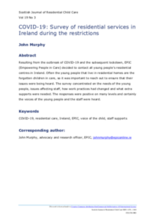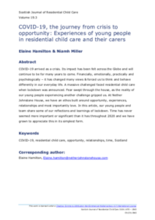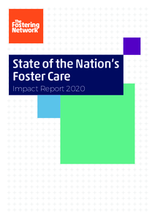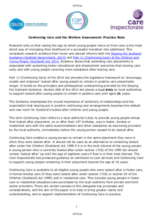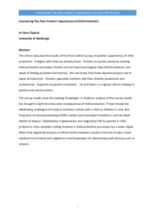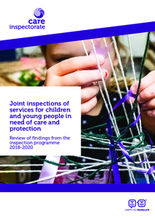

Displaying 641 - 650 of 1646
This article describes the system of training and support of foster carers and adoptive parents in Estonia.
Resulting from the outbreak of COVID-19 and the subsequent lockdown, EPIC (Empowering People in Care) decided to contact all young people’s residential centres in Ireland. This article present the results of that survey.
In this article, the young people and team at the Nether Johnstone House in Scotland share some of their reflections and learnings of lockdown.
The Fostering Network's State of the Nation’s Foster Care survey is the largest survey of foster carers in the UK. This impact report lists the positive changes that have happened in the world of fostering since the publication of the State of the Nation 2019 report to the end of 2020.
This Practice Note clarifies the legislative requirements in Scotland when undertaking a Welfare Assessment to support planning for a looked after young person to ‘stay put’ in a care placement under Continuing Care arrangements.
This report from Save the Children Norway explores what child welfare institutions in Norway are doing to protect children in their care from the risk of online sexual offences.
This blog post describes the benefits of parent advocacy for parents involved in the child protection system and includes a letter of thanks written by Taliah Drayak to her advocate.
This article discusses the results of the first Scottish survey of parents’ experiences of child protection.
This article explores changes in policy and practice in children’s services in the UK over the past 40 years and discusses the thinking that has underpinned them.
This report is a review of the findings of joint inspections of the delivery of services to children and young people in need of care and protection by community planning partnerships in eight areas across Scotland, undertaken 2018 – 2020.

